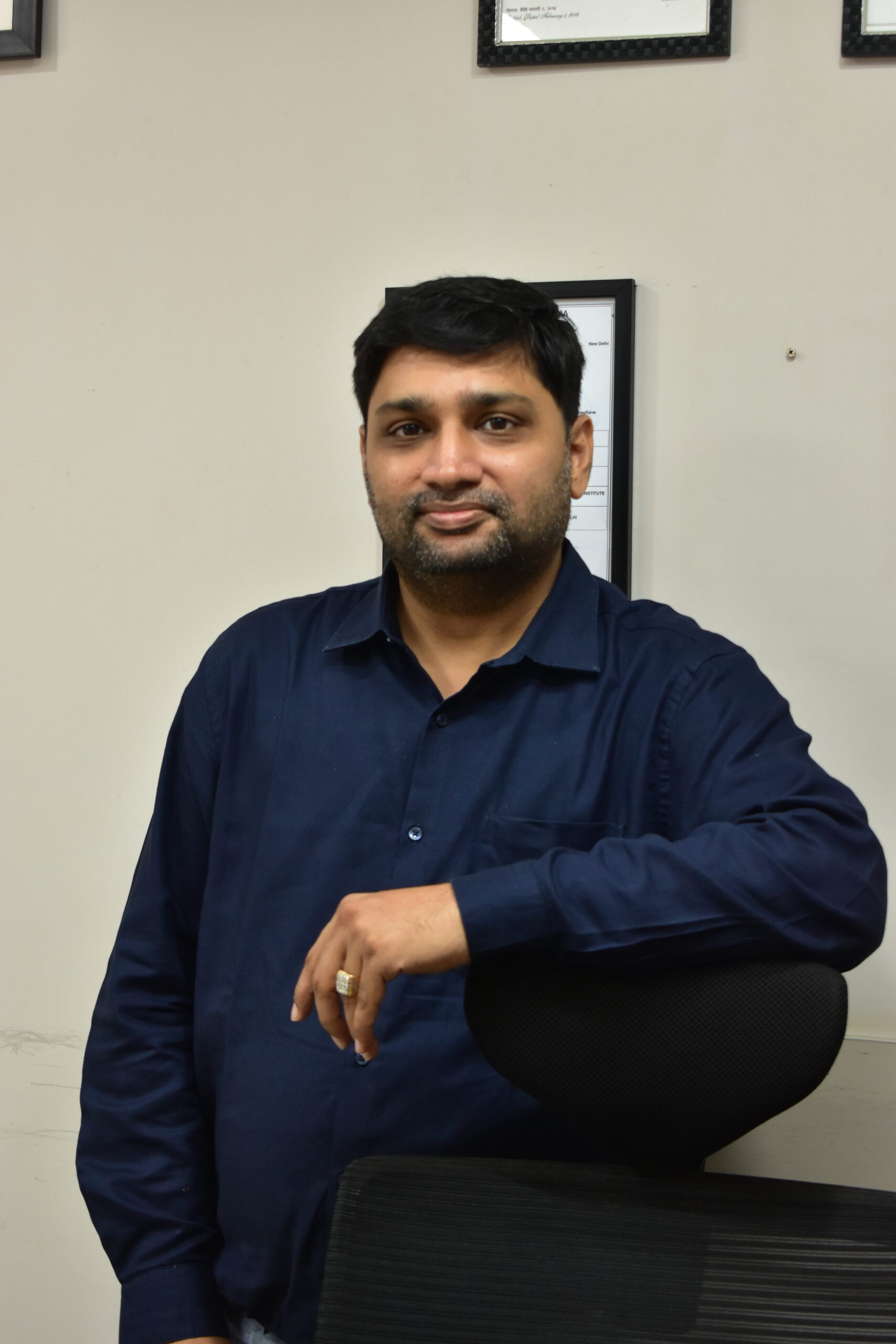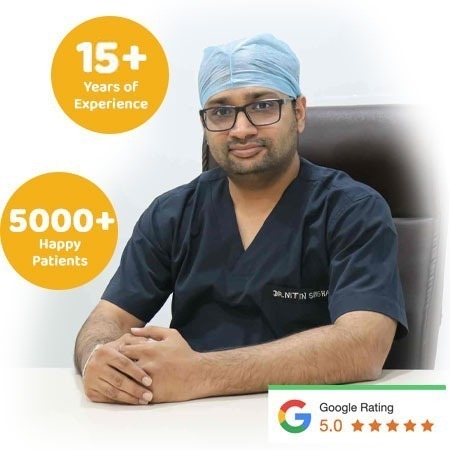When you’re searching for the best cancer specialist in Ahmedabad, it's crucial to choose someone with deep expertise and years of experience. That’s where Dr. Nitin Singhal excels. With More than 15 years of experience in treating gastrointestinal, gynecological, and urological cancers, as well as specializing in advanced Robotic and HIPEC surgeries, Dr. Nitin Singhal is a distinguished oncologist in Ahmedabad, known for his dedication and specialized care.




Dr. Nitin Singhal, a highly respected oncologist, has received his training from the esteemed Tata Memorial Hospital in Mumbai, recognised globally as one of the top institutions for cancer education and specialised oncology training.
He specialises in gynecologic oncology surgeries and has extensive expertise in performing robotic surgeries and Hyperthermic Intraperitoneal Chemotherapy (HIPEC) for recurrent cases. Dr. Singhal is also adept in complex colorectal surgeries aimed at sphincter preservation.









In a rare and extraordinary medical achievement, a woman weighing just 49 kg was successfully treated after the removal of a massive 47 kg tumor one of the largest tumors ever surgically removed and documented in India.
This highly complex and high-risk procedure was widely covered by national media, including The Times of India, highlighting the precision, planning, and surgical expertise required to save the patient’s life.
Such cases demand advanced surgical judgment, multidisciplinary coordination, and experience in handling extreme oncological challenges where even minor errors can be life-threatening.

Your body is made up of many different types of cells. Under normal conditions, cells grow, divide, become old, and die. Then, in most cases, they’re replaced by new cells. But sometimes cells mutate grow out of control, and form a mass, or tumor, instead of dying.
Tumors can be benign (noncancerous) or malignant (cancerous). Cancerous tumors can attack and kill your body’s tissues. They can also spread to other parts of the body, causing new tumors to form there. This process is called metastasis and it represents cancer that has advanced to a late stage.
Cancer is, in fact, a genetic disease. This is because cancer is caused by mutations or changes to genes that control the way our cells function, causing them to behave irregularly. These mutations can be inherited, as they are in about 5-10 percent of all cancer cases, but it’s much more likely that these gene changes occur during a person’s lifetime due to other factors besides genetics.
When someone has a known family history of hereditary cancer, genetic testing is often recommended.
No. Cancer isn’t like the flu or a cold. You can’t catch cancer from someone who has the disease.
There is no vaccine for cancer. But there are vaccines for some viruses that are known to cause cancer, such as the human papillomavirus (HPV) and hepatitis B.
HPV can cause cancer and getting vaccinated against it can help protect against the types of HPV that can lead to cervical, anal, throat, and penile cancers, along with some other forms of cancer. The HPV vaccine protects against many strains of the virus that can cause these cancers.
The same is true for infection with the hepatitis B virus, which has been linked to liver cancer. Getting vaccinated against hepatitis B can reduce your risk for getting liver cancer. But just like the HPV vaccine, the hepatitis B vaccine doesn’t protect against liver cancer itself. It only protects against the virus that might lead to liver cancer.
Yes. When cancer treatment appears to be working, your doctor might say the cancer is in remission. A partial remission occurs when the cancer shrinks but doesn’t disappear. A complete remission means there is no longer any sign of cancer.
The longer a cancer is in complete remission, the less likely it is to come back, and at some point your doctor might say the cancer has been cured.
Cancer typically has four stages: I through IV (1 through 4). Some cancers even have a stage 0 (zero). Here’s what these stages mean:
Sometimes, but not always. The signs and symptoms of cancer depend on where the cancer is located and how big it is.
As a cancer grows, it can push on nearby organs and other structures. The resulting pressure can cause signs and symptoms.
Some cancers grow in places where they won’t cause any signs or symptoms until they have advanced. For example, pancreatic cancer usually doesn’t cause any signs or symptoms until it grows large enough to press on other structures, causing pain, or manifesting signs of jaundice, which is yellowing of the skin.
Some general signs and symptoms of cancer can include:
Keep in mind that there can be other reasons for these signs and symptoms. The only way to find out what’s causing them is to see your doctor. If you notice any of these symptoms and they don’t pass, it is time to get them looked at.
Chemotherapy uses drugs to destroy cancer cells. But chemotherapy drugs can also harm healthy cells, leading to treatment side effects.
Newer drugs, called targeted drugs, block genes or proteins found in the cancer cells. Targeted therapy usually causes less harm to healthy cells, but it still has side effects.
Immunotherapy uses hormones and other drugs that work with your immune system to treat cancer.
Recommendations for the types of screening tests and the ages you should get them vary according to cancer type. So, it’s a good idea to have a conversation with your doctor about what type of test you might need and when.
